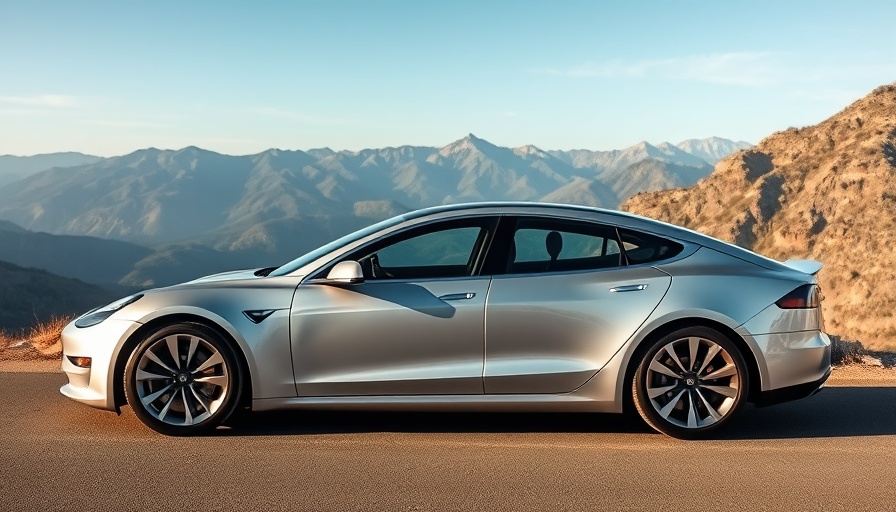
The Difference Between Hope and Reality: Tesla's Self-Driving Features
Tesla's ambitions in the realm of self-driving technology have long outshone the current reality. While the American market remains eager, hailed largely as a transformative innovation, the UK government remains cautious. The Department for Transport (DfT) has effectively put the brakes on Tesla’s Full Self-Driving (FSD) software, citing safety instead of merely fending off competition. This stark contrast between business hope and regulatory realities raises questions about the ethical implications of self-driving technology.
Understanding the UK’s Safety Concerns
In opting to restrict Tesla’s automated features, officials in the UK pointed to vital safety data. The DfT has been astute in demanding further evidence regarding potential safety risks. A significant proportion of accidents—88%—involve human error, indicating a pressing need for reliable technology. However, as officials noted, implementing feature-driven maneuvers without risk assessment could lead to new safety challenges. This layered scrutiny positions the UK as a stringent regulator while advocating for innovations designed to lower accident rates.
A Global Perspective: Comparative Regulations
The concerns voiced by the UK resonate on a global scale. Countries like Norway, the Netherlands, and Sweden have underscored similar inquiries regarding driver behavior and the long-term societal impact of such technologies. These ongoing discussions are reflective of a broader trend where the promise of autonomous driving clash with comprehensive safety evaluations. As Tesla aims for more markets like China and the US, the regulatory landscape becomes increasingly important.
The Economic Implications of Delayed Releases
Tesla's FSD feature comes at a premium, costing £6,800 in the UK and $8,000 in the US. With such a high price point, consumers have invested in the promise of future autonomy. Yet, with promises unfulfilled, Tesla risks not just financial implications but also its reputation. In a fast-paced marketplace, where competition drives constant innovation, falling behind in regulatory negotiations may have serious long-term repercussions.
Future Predictions: Technology versus Human Intelligence
As technology between manufacturers escalates, the real question emerges: When will automated systems surpass human drivers? The UK government insists on treating driver assistance milestones with caution, which could ultimately extend the timeline for innovations. If companies cannot substantiate their claims with sufficient data, the road to true autonomous driving could be dotted with delays for years to come.
The Value of Public Transparency and Trust
The saga between Tesla and the UK's regulatory bodies underscores the essential nature of transparency in consumer technology. Evidence showcased by the UK's DfT illustrates a society that does not want the excitement of self-driving features to overshadow the paramount value of safety. As Elon Musk and his team navigate these challenges, gaining public trust may become their most significant hurdle. Future generations of car enthusiasts may demand answers not only about the capabilities of vehicles but also about the safety measures placed before them.
As Tesla celebrates its technological advancements amidst consumer enthusiasm, the company must prioritize constructive dialogue with regulatory bodies to pave a safe path forward. Consumer awareness remains vital; thus, fostering transparent discussions is essential. The future of automotive technology rests on this balance between ambition and responsibility, and its outcome will shape the roads we drive for years to come.
 Add Row
Add Row  Add
Add 




 Add Row
Add Row  Add
Add 

Write A Comment